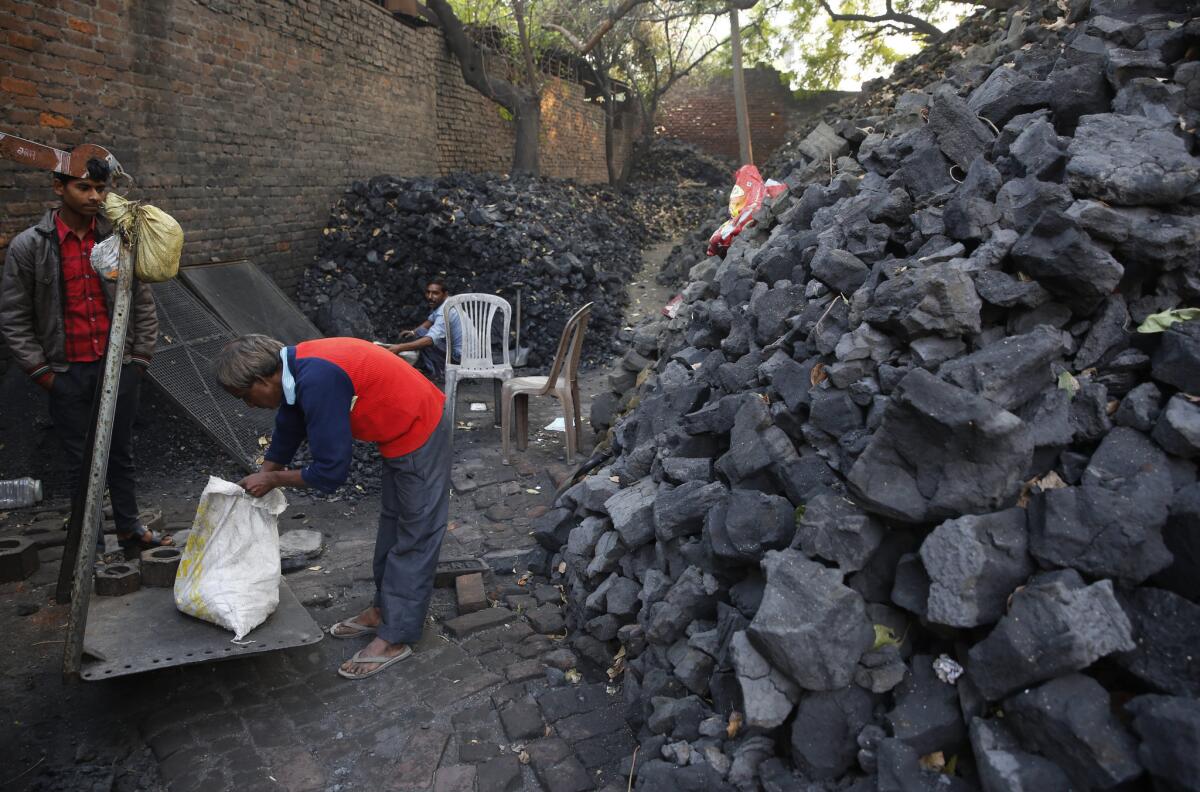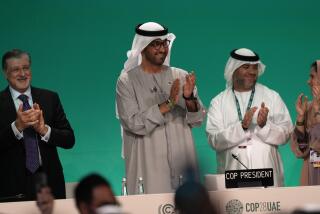Climate change: Understanding the debate over ‘transparency’

An Indian coal vendor weighs coal for a customer in Lucknow on Dec. 3.
As negotiators at the United Nations climate summit outside Paris work toward a Friday deadline on a final agreement aimed at reducing worldwide carbon emissions, one sticking point is how to measure, report and verify emissions to ensure that countries are meeting their reduction targets. Here are some of the key arguments around the issue of transparency.
Why is transparency so important?
Billions of tons of carbon dioxide and other greenhouse gases are emitted into the atmosphere each year. Accounting for them country by country is no easy task. Every smokestack and exhaust pipe is a source of carbon.
For any agreement to work, countries have to trust one another’s emissions numbers. Only with transparency and review measures in place can negotiators return home confident that every nation is doing its part.
“The primary reason that a global agreement is so important is to give countries the political space and confidence to take strong actions at home, knowing their peers are doing so in other countries,” said Duncan Marsh, director of international climate policy at the Nature Conservancy.
Todd Stern, the chief U.S. negotiator, also described the transparency issue as “vital.”
“We are proposing ... a regime where countries are encouraged to do the best that they can, but are not expected to do more than they can. So we have not pushed for an intrusive system, but we are pushing for a responsible and strong system.”
What details still need to be worked out?
At the most basic level, countries have to agree on bookkeeping rules governing emissions reductions. Such rules guard against the possibility of the double-counting reductions.
“This sounds like basic common sense,” said Alex Hanafi from the Environmental Defense Fund. “But that is surprisingly contentious here.”
“You can’t have effective compliance without information on what countries are actually doing on the ground at home,” he said. “Getting those rules of transparency right, here in Paris, is really important.”
There is also debate about whether all countries should be subjected to the same reporting standards. Some developing nations, including India, argue that they should be held to less rigorous standards than developed countries, which have greater resources and capabilities to track their progress.
One option is for wealthier countries to provide financial and technical assistance to poorer ones to help them monitor their emissions.
Some countries are calling for legally binding targets to ensure that all nations fulfill their emissions promises. That seems unlikely. Enforcement of such targets would require stringent penalties, and too few countries are willing to commit to that.
Still, international shaming can go a long way in holding countries to their promised reductions.
Some experts also argue that countries are more likely to adopt ambitious targets if they don’t have to worry about fines or other penalties.
Will there be regular reviews to track progress?
Maybe. Negotiators have discussed setting five-year reviews so that climate targets can be modified if necessary. The idea is to allow the agreement to adapt to changing environmental conditions and scientific advances.
Indian representatives have spoken in favor of such a plan, particularly one that would require developed countries to set increasingly ambitious targets.
Although India is now the third-largest carbon emitter on a yearly basis -- behind China and the U.S. -- officials there argue that developed countries should take the most aggressive action. The U.S. and Europe are still responsible for the largest share of emissions that have accumulated in the atmosphere since the Industrial Revolution began.
Marsh of the Nature Conservancy called for a review of worldwide progress as soon as 2018.
“There is a risk that if countries don’t do this, that the detail of transparency will be lost,” he said. “Less detail ultimately means less ambition.”
Boyle is a special correspondent.
More to Read
Start your day right
Sign up for Essential California for news, features and recommendations from the L.A. Times and beyond in your inbox six days a week.
You may occasionally receive promotional content from the Los Angeles Times.






